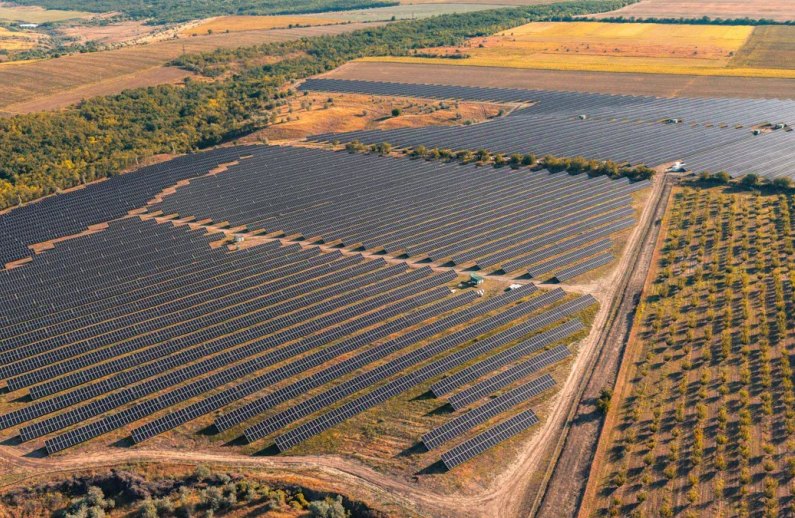Como as baterias solares transformam as operações agrícolas modernas?
Aug 13, 2025
Baterias solares ajudam fazendas fornecendo energia estável. Elas também reduzem custos. Muitas fazendas economizam mais de 60% nas contas de energia. A tabela abaixo mostra a economia real: Tipo de FazendaCusto antesCusto depoisPoupançaFazenda de vegetais (100 acres)$ 24.000$ 6.80072%Fazenda leiteira (200 vacas)$ 18.500$ 7.20061%Fazenda irrigada (150 acres)$ 15.000$ 3.20079% Baterias solares alimentam a irrigação, equipamentos e armazenagem refrigerada. Todas as fazendas podem experimentar essas soluções. Elas ajudam as fazendas a funcionar melhor e a durar mais.Benefícios das baterias solares Fonte de alimentação confiávelBaterias solares fornecem energia constante às fazendas. Elas armazenam luz solar para uso posterior. Isso significa que as fazendas têm energia mesmo quando o tempo está nublado. Os agricultores podem manter a irrigação, os equipamentos e o armazenamento refrigerado funcionando. A energia da rede elétrica e a diesel podem parar de funcionar em caso de tempestades ou se o combustível acabar. Sistemas de armazenamento de baterias solares ajudar os agricultores a evitar esses problemas.Baterias solares armazenam energia, então a água pode ser entregue a qualquer momento.A rede elétrica e a energia a diesel podem parar de funcionar e custar mais.Os sistemas de bateria permitem que os agricultores irrigem as plantações de acordo com sua própria programação.Fazendas registram menos cortes de energia após a instalação de baterias solares. A tabela abaixo mostra como as baterias solares ajudaram as fazendas durante emergências: Nome da FazendaExperiência de queda de energiaImpacto do sistema de bateria solarPerdas estimadas evitadasVale VerdeParada de 3 diasContinuou trabalhando durante o incêndio florestal para que a comida não estragasse e a água continuasse fluindo.N / DLaticínios HilltopTempestade de inverno severaA ordenha e o resfriamento continuaram, economizando US$ 45.000.$ 45.000Produtores SunRidge6 dias de interrupção devido ao furacãoContinuou regando as plantações, economizando US$ 85.000 em perdas.$ 85.000 Baterias solares ajudam a regar melhor as plantações. Elas mantêm a pressão da água estável. Isso significa que a água se espalha de forma mais uniforme, até 17% melhor. Os agricultores podem usar mais de um sistema ao mesmo tempo. Eles não perdem plantações quando a rede elétrica cai.Economia de custosBaterias solares ajudam fazendas a economizar dinheiro de diversas maneiras. As fazendas compram menos eletricidade da rede ou usam menos diesel. A Willow Creek Dairy reduziu o consumo de energia da rede em 87% após a instalação da energia solar. Isso economizou muito dinheiro a cada ano.Fazendas leiteiras economizam de US$ 15.000 a US$ 30.000 por ano com energia solar.Granjas avícolas reduzem contas de energia elétrica em 60-70% após a energia solar.Pequenas fazendas de vegetais economizam de US$ 5.000 a US$ 10.000 por ano com energia solar.A Willow Creek Dairy, em Wisconsin, economizou cerca de US$ 44.400 por ano com um sistema solar de 100 kW.Edifícios frigoríficos também economizam dinheiro com baterias solares. Elas podem reduzir os custos de energia em 35%. O sistema leva cerca de cinco anos para se pagar. Esses edifícios armazenam energia solar extra durante o dia. Eles a utilizam à noite ou quando a energia está cara. Isso economiza dinheiro e mantém os alimentos seguros em caso de falta de energia. As baterias solares também ajudam esses edifícios a poluir menos e a serem mais sustentáveis.Independência energéticaBaterias solares ajudam fazendas a controlar sua própria energia. Os agricultores não precisam tanto da rede elétrica ou do diesel. Isso é bom para fazendas distantes das cidades.Os agricultores usam menos diesel ou energia da rede, então os custos diminuem.A energia solar é mais limpa e ajuda o planeta.Esses sistemas fornecem água constante, para que as fazendas continuem funcionando mesmo se houver falta de energia.A irrigação movida a energia solar usa a luz solar para acionar bombas de água, de modo que as fazendas precisam de menos energia da rede elétrica ou diesel.Esses sistemas são mais baratos e melhores para o meio ambiente, então os agricultores economizam dinheiro.Eles fornecem água constante, para que fazendas em lugares distantes possam continuar funcionando mesmo se houver falta de energia.Uma granja avícola costumava usar geradores a diesel o dia todo. Depois de mudar para baterias solares, eles usaram o gerador por apenas 1,5 hora por dia. Isso reduziu o consumo de diesel em 93%. Agora, a granja tem energia estável e paga menos.Baterias solares ajudam fazendas a usar melhor a água. A irrigação inteligente com baterias solares pode economizar até 30% mais água. A irrigação por gotejamento pode ter até 95% de eficiência. As fazendas podem cultivar mais alimentos e desperdiçar menos.Baterias solares ajudam o meio ambiente. Elas reduzem o consumo de combustíveis fósseis. Fazendas podem receber recompensas e créditos fiscais por serem sustentáveis. Fazendas com baterias solares poluem menos e demonstram que se importam com o planeta.Candidaturas e Seleção Equipamentos e Armazenamento AgrícolaOs agricultores usam baterias solares para alimentar máquinas e equipamentos de armazenamento. Esses sistemas mantêm tudo funcionando mesmo em caso de queda de energia. Isso ajuda a proteger animais e plantações. Muitas granjas no norte do Alabama instalam painéis solares e baterias em aviários. Essas mudanças melhoram o isolamento, o fluxo de ar e a iluminação. A tabela abaixo mostra como a energia solar ajuda as granjas avícolas: Tipo de evidênciaDescriçãoInstalações solaresMais de 25 granjas avícolas no norte do Alabama usam sistemas solares.Eficiência EnergéticaOs aviários modernos economizam energia com melhor isolamento e iluminação.Redução de custosA energia solar ajuda a garantir custos de eletricidade mais baixos para os produtores.Uso da bateriaAs baterias armazenam energia CC para uso quando o sol não está brilhando. Os agricultores também usam baterias solares para secar as plantações. Os sistemas solares térmicos fornecem calor para a secagem a um custo menor. Os sistemas fotovoltaicos alimentam máquinas e funcionam bem em dias ensolarados. Esses sistemas ajudam a manter as plantações em boas condições, controlando a forma como secam.Baterias solares exigem menos cuidados do que geradores a diesel. Elas reduzem as emissões de carbono e ajudam fazendas a evitar preços mais altos de energia por mais de 25 anos.Sistemas agrovoltaicos e off-gridSistemas agrovoltaicos utilizam painéis solares e cultivam as plantações em conjunto. Agricultores instalam módulos fotovoltaicos acima das plantações para ganhar mais dinheiro por acre. Esses sistemas ajudam os agricultores a usar sua própria energia e a cultivar mais plantações. Bancos de baterias economizam energia solar extra para uso noturno ou fora da rede. Soluções de baterias solares fora da rede com baterias de íons de lítio e fosfato de ferro-lítio funcionam em muitos climas e ajudam a gerenciar energia de forma inteligente.A energia agrovoltaica ajuda as fazendas a permanecerem verdes e a lidar com as mudanças climáticas.Escolhendo a bateria certaOs agricultores precisam pensar em algumas coisas ao escolher uma bateria solar:Tamanho da fazenda e quanta energia é necessáriaClima e tempo na áreaTipo de bateria, como bateria solar de lítio para agricultura ou fosfato de ferro e lítioA tabela abaixo compara os tipos de baterias para fazendas: Tipo de BateriaAdequação climáticaPrincipais característicasFosfato de ferro e lítio (LiFePO4)Funciona em muitos climas, ampla faixa de temperaturaMaior segurança e confiabilidadeíon de lítioApresenta bom desempenho na maioria das condições climáticasEstável, eficiente e duradouro Baterias de íons de lítio ajudam a reduzir custos e duram até 10 anos. Elas armazenam bem a energia e ajudam a usar menos combustível fóssil. Os agricultores podem usá-las para alimentar máquinas de irrigação e outras máquinas.Uma verificação de custos mostra que painéis solares e baterias podem custar US$ 10.000 ou mais no início. Mas os agricultores economizam cerca de US$ 2.000 por ano em contas de energia. Alguns programas ajudam a pagar esses custos: Tipo de incentivoDescriçãoCrédito Tributário FederalCrédito de 30% para instalações solares, estendido até 2035SGIPDesconto de US$ 200 por kWh para armazenamento de bateriaCOLHEREmpréstimos e subsídios para sistemas de energia renovávelMedição LíquidaCréditos pelo excesso de energia produzida Agricultores no Oregon podem ganhar até US$ 2.500 para adicionar uma bateria à energia solar. Esses programas tornam as baterias solares mais baratas e ajudam as fazendas a se manterem fortes. Os agricultores economizam dinheiro e obtêm energia estável com sistemas de baterias. Essas baterias ajudam as fazendas a trabalhar sem parar. Elas também ajudam as fazendas a consumir menos energia da rede. A tabela abaixo mostra como as baterias ajudam as fazendas de diversas maneiras: VantagemDescriçãoEconomia de custosReduz as contas de energia e mantém os preços baixos.Independência energéticaDeixe que as fazendas continuem trabalhando longe das cidades.Benefícios ambientaisProduz menos poluição e reduz emissões.Baixa manutençãoPrecisa de poucos cuidados, então há menos problemas.EscalabilidadeFunciona para fazendas grandes ou pequenas e para diferentes necessidades.ConfiabilidadeFornece energia constante para ajudar as fazendas a produzir mais. Os agricultores podem trabalhar melhor, manter suas fazendas seguras e ajudar o planeta usando esses sistemas de bateria.


 REDE SUPORTADA
REDE SUPORTADA